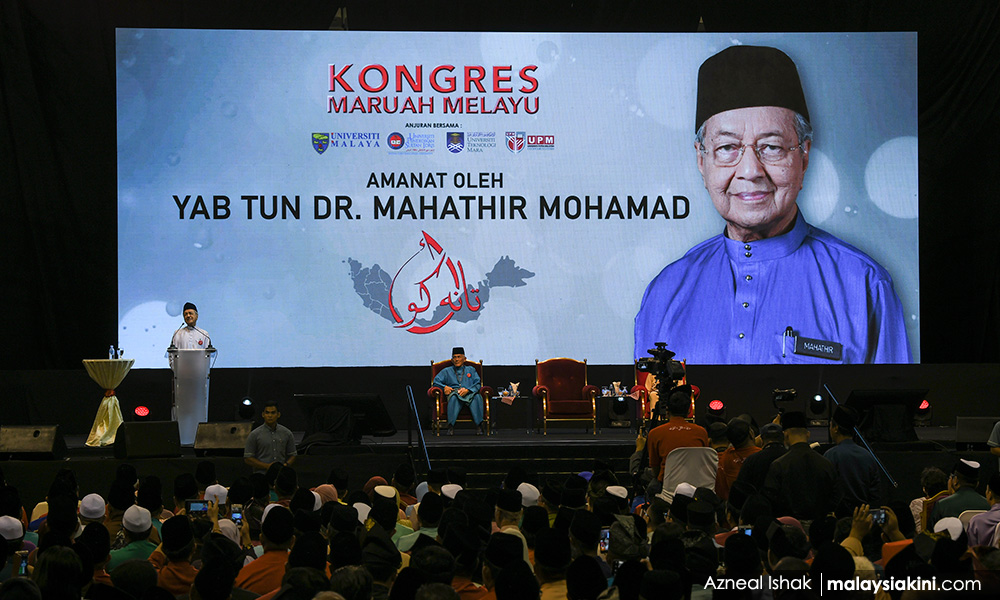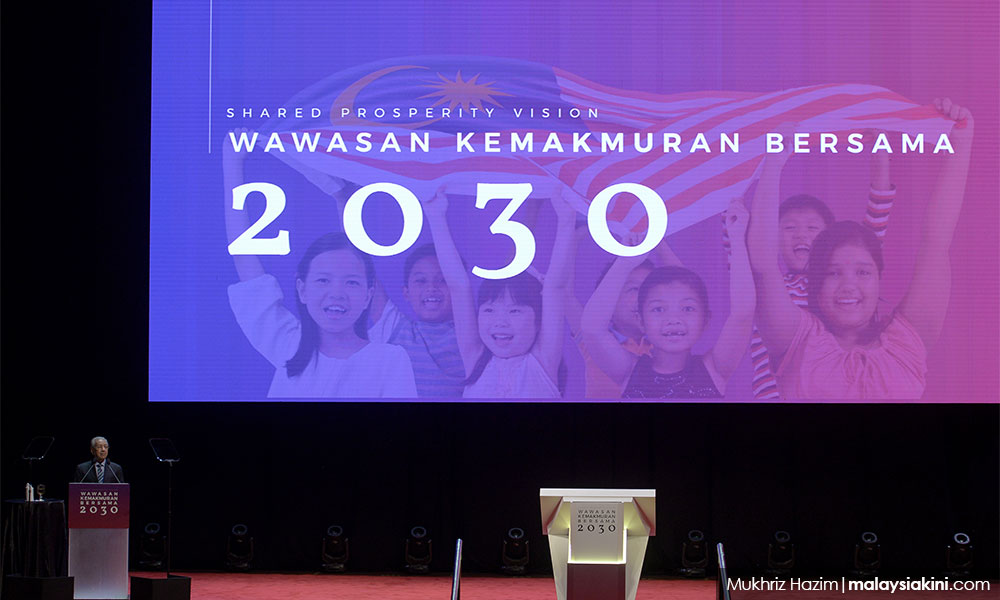The International Day for the Elimination of Racial Discrimination is observed annually on March 21. On that day in 1960, South African police opened fire and killed 69 people at a peaceful demonstration against apartheid laws in Sharpeville, South Africa.
Subsequently, the United Nations General Assembly proclaimed this day as a date for special observance and called on the international community to redouble its efforts to eliminate all forms of racial discrimination.
The International Convention on the Elimination of All Forms of Racial Discrimination (Icerd) was adopted and opened for ratification by the UN General Assembly in 1965.
A repeat of ‘May 13’ if Icerd ratified
As Malaysians know very well, the ratification of Icerd has proven to be most elusive through successive regimes. During the years of BN rule with Umno's de facto dominance, this question was non-negotiable.
When the new Pakatan Harapan coalition came into office in May 2018, their administration was marked by flip-flops on implementing the reforms they had promised voters in their GE14 manifesto.
The Harapan government decided to back down on their manifesto promise of ratifying Icerd, in the face of falsely framed arguments and fascist threats of a repeat of ‘May 13’.
This retreat sent a clear message that the Harapan government lacked the political will to eradicate racism and racial discrimination and that it was prepared to connive with the blatant selective efficiency of the police in keeping law and order.
In my book, ‘May 13: Declassified Documents on the Malaysian Riots of 1969’, I point out that the ‘May 13 Incident’ was not a spontaneous post-election riot between “Malays” and “Chinese” but rather, it had been orchestrated by “hidden hands” in the coup de tat against the Tunku.
Today, the opponents of Icerd are so emboldened that they can openly declare they will unleash ‘May 13’ if the government goes ahead with the ratification of Icerd!
This reminds us of the prelude to Operation Lalang in 1987 when Umno Youth threatened to hold a rally of 500,000 in Kuala Lumpur against the Chinese educationists protesting the practice of sending unqualified administrators to Chinese schools.

Instead of acting against the organisers of this threat, the authorities opted to arrest and detain, without trial, us civil society activists, under the Internal Security Act.
And if these opponents of Icerd were to resort to violence, would the police and security forces be similarly ineffectual against them? Such bias in carrying out their duties is a serious admission of double standards by the police and our security forces who claimed victory over armed insurgents during the emergency, who today face international terrorists, and who only a few years ago, were ruthless against thousands of Reformasi demonstrators during the Kesas Highway demonstration.
Since there is no political will expressed by the new government to ratify Icerd, it looks like we are stuck with the never-ending racially defined economic, social, and cultural policies for some time to come.
For a start, how could there be any political will when the prime minister himself is the leader of a racial-based party meant exclusively for ‘Pribumis’? Aside from the PM’s race-based party, the other supposedly “democratic” and “multi-ethnic” component parties of the Harapan coalition have failed the Malaysian people in the same way that MCA and MIC have failed them, by condoning the racial discrimination of the previous BN administration.
By not ratifying the Icerd, the Harapan government carried on with all the racially discriminatory policies and measures that we have seen, especially since 1971, notably the Approved Permit (AP) scandal and the crony capitalism all these years, the abuse of the quota system, and especially the apartheid ‘Bumi-only’ policy at UiTM.
Bumiputera congress burst ‘New Malaysia’ bubble
The shocking pronouncements from the Bumiputera Congress that convened in September 2018 constituted the biggest let-down to date since the Malaysian people voted for a “New Malaysia” with real reforms after 61 years of BN rule.

Harapan leaders had promised that affirmative action would be needs-based rather than race-based and concerned rights activists, economists, and investors alike had called for the termination of the never-ending New Economic Policy.
Alas, we have all been disappointed. There now seems to be no likelihood that we will see the end of Bumiputera populism for, after the Bumiputera Congress, the then prime minister started to privatise our national asset, Khazanah to “Bumiputera entrepreneurs”.
In the first place, this national asset belongs to all of us taxpaying citizens, irrespective of ethnicity, and secondly, all Malaysians who care about developing our “collective” national assets should defend it against any privatisation.
Shared Prosperity Vision: A rehash of the NEP
More recently in October 2019, the Harapan government launched the Shared Prosperity Vision (SPV) 2030, a document that outlines 10-year goals “to restructure Malaysia's low-skill labour-intensive economy to a knowledge-based economy”.
It has been pointed out by various academics that this SPV 2030 is but a rehash of the National Economic Policy (NEP) from the 1970s, with similar emphasis on race-based Bumiputera policies.
Furthermore, they have complained that the government is not being transparent with its data, denying free access to complete and updated data for researchers, and failing to address fundamental questions related to the corporate sector and education, among others.

End race-based policies to become an inclusive high-income country
In Malaysia, given that it is now more than 30 years since the NEP deadline in 1990, it makes developmental sense to implement a new socially just affirmative action policy based on need, or class, or sector.
If we are to attain high-income country status, experts have pointed out that Malaysia will have to engage in tough reforms, particularly in two areas, namely, productivity growth and fostering inclusive development through improving education standards and better governance.
This means wealth redistribution to favour the less-privileged through a social safety net and an employment insurance scheme regardless of race.
The cost and consequences of the racially discriminatory policies in Malaysia have been immense especially since the NEP in 1971. This policy has caused a crippling polarisation of Malaysian society and a costly brain drain. Any policy based on “race” is seriously flawed since every ethnic community has its rich elite and its poorer majority.
As a result, without effective checks and balances, Malaysia has been beset by massive scandals like Bank Rakyat, BMF, 1MDB, and others since 1971, and no doubt, there will be others.
More potentially dangerous and insidious is the institutionalised effect this widespread racial discrimination has had on ethnic relations in this country. Fostering inclusive post-Covid-19 development can only be promoted, through an affirmative action policy based on need, sector, or class, never on race.
Will Malaysia ever celebrate this International Day for the Elimination of Racial Discrimination? I hope so. When we do, that will be the day for the biggest celebration our country has ever witnessed since Merdeka in 1957!
KUA KIA SOONG is adviser of Suara Rakyat Malaysia (Suaram). - Mkini
The views expressed here are those of the author/contributor and do not necessarily represent the views of MMKtT.




No comments:
Post a Comment
Note: Only a member of this blog may post a comment.